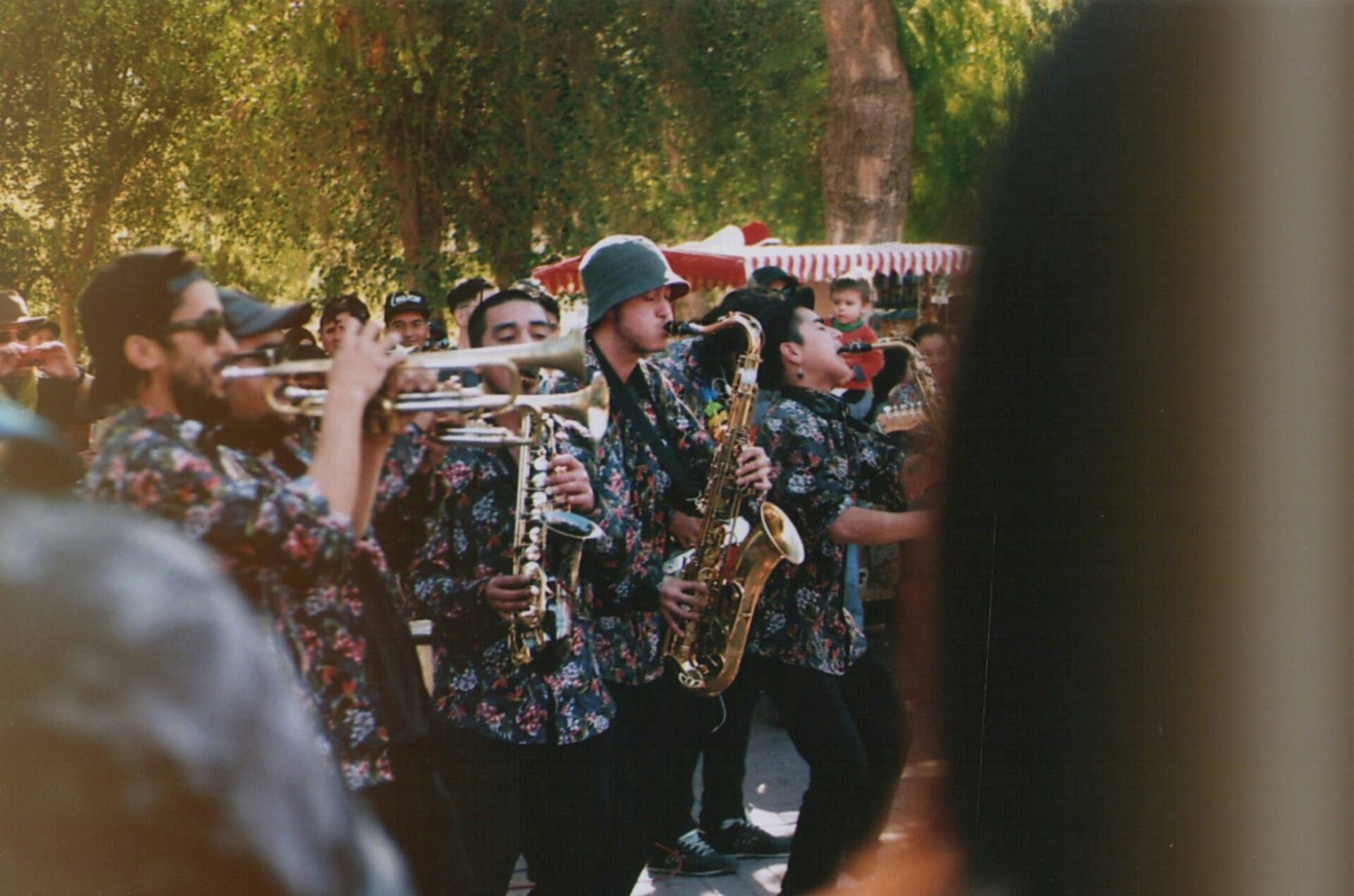During the height of the Cold War, a jazz tour in Latin America became an unexpected battlefield for hearts and minds. American jazz musicians, ambassadors of freedom and innovation, took the stage in countries shadowed by political tension, offering a rhythm of hope and a melody of shared humanity. This moment underscores how American music has served as a diplomatic bridge, transcending borders and ideologies. As International Jazz Day approaches on April 30, it’s timely to reflect on the unique power of music diplomacy, particularly its resonance within Inter-American affairs.
Jazz is the sound of freedom, born of the quest for harmonious dialogue through the resolution of conflicting perspectives — under the pressure of time.
– Wynton Marsalis
Jazz, a genre birthed from the African American experience, epitomizes the spirit of democracy, freedom, and cultural fusion. Its global journey serves as a testament to music’s ability to cross borders and build bridges, with a potential that shines even brighter in the Americas.
Universal Language
Jazz speaks the universal language of rhythm and soul. As is also the case with mathematics, music transcends linguistic barriers and cultural differences. Its improvisational nature mirrors the democratic process, embodying dialogue, participation, and freedom of expression.
In Latin America and the Caribbean, where diverse cultures converge, jazz finds a fertile ground, blending with local sounds to create something both familiar and entirely new. This musical alchemy not only entertains but also fosters mutual understanding and respect among diverse peoples.
While cultural diplomacy and music are able to transcend boundaries and speak across language barriers, it has the potential to be even more impactful in the Americas as the region shares a legacy of musical dialogue and influences that impact one another.
Music Diplomacy is a Unique Opportunity
One of the most profound strengths of music is its ability to communicate without words, to convey emotions and stories across linguistic barriers. Music creates a common ground, a shared language that can express aspirations, struggles, and joys, resonating with people at a fundamental human level. Music acts as a potent form of cultural diplomacy, facilitating people-to-people connections that can bridge the gaps traditional diplomacy sometimes cannot reach.
Music is the universal language of mankind.
– Henry Wadsworth Longfellow
Given this potential, it should come as little surprise that the United States has a long history of using music as a diplomatic tool. While the US government leveraged cultural diplomacy as far back as the Good Neighbor Policy -– including sending Disney to Latin America where he engaged with Latin American artists and musicians — to build connections across the globe and the region, music as a US foreign policy tool is most often associated with the Jazz ambassadors program — a Cold War era program where the US government dispatched jazz musicians as cultural ambassadors to counteract Soviet influence.
While the geopolitical landscape has evolved, the principle remains relevant: music as a diplomatic tool can soften political tensions and open channels for dialogue and cooperation. Today, US music diplomacy has embraced other musical forms — such as Hip Hop Diplomacy — and recently launched the Global Music Diplomacy Initiative. The legacies of music diplomacy continue to grow and the understanding of the influence of people-to-people and cultural diplomacy shape how the US conducts foreign policy.
… music is a way for all of us to show who we are, where we come from, what we love, and also to learn the same about other people. That’s true of people. It’s also true of countries.
– Anthony Blinken
In the context of Inter-American relations, music embodies the diverse cultural heritage of the region, highlighting shared histories and common values. By engaging in musical exchanges, countries can celebrate their differences while acknowledging their interconnectedness, fostering a sense of regional identity and solidarity.
Inter-American Cultures and Fusion
While music diplomacy can be applied anywhere, it has an especially powerful potential within Inter-American affairs. The Americas boast an incredibly rich musical landscape, from the jazz clubs of New Orleans to the tango halls of Buenos Aires. This diversity is not just a source of cultural pride but also a diplomatic asset. Music festivals, concerts, and exchanges that highlight this variety can promote cultural tourism, support local economies, and build bridges between communities. By showcasing the unique musical traditions of each country, we celebrate our diversity and build a stronger, more unified region.
Due to their own historical legacies and the mestizaje of their population, many of the nations of the Americas have noted that fusion is a core component of their national identity. The United States is regularly referred to as a “melting pot” — with the different cultures that came (or were forced) to the country coming together to create something new. Likewise, when Brazilian modern artists sought to define Brazilian culture, Oswald de Andrade noted that it was Brazil’s ability to “cannibalize” different influences into something uniquely Brazilian.
Fusion and National Identity
Fusion as a central element of national identity in the Americas is also evident in the development of many musical traditions in the Americas as well. While many traditional musical forms across the Americas draw from the different indigenous, African descendant, and European influences that make up the cultures of each country, modern musical movements in the region have influenced and been influenced by one another.
In fact, one of the godfathers of early jazz, Jelly Roll Morton, noted the role of Latin American rhythms in the development of the genre. Similarly, the influences of jazz are clear on Bossa Nova and other Latin American art forms, which in turn have other musical forms in the Americas — from the impact of reggaeton on Hip Hop to Bossa Nova’s own influence on jazz.
… if you can’t manage to put tinges of Spanish in your tunes, you will never be able to get the right seasoning… for jazz.
– Jelly Roll Morton
Analyzing Inter-American relations through a musical lens does more than offer a novel perspective — it highlights the universal principles of balance, pattern, narrative, and interdependence that are central to both. By understanding how these elements interact in a musical context, we can appreciate the subtleties of diplomatic relations in the Americas, recognizing the potential of music as a unifying force that transcends linguistic and cultural barriers, promoting a more harmonious regional symphony.
Musical Fusion as Pan-American Diplomatic Tool
Now is the time to double down on Inter-American music diplomacy. The dialectic nature of music in the Americas has never been stronger. Latin Music is one of the fastest growing genres in the United States, and North American artists regularly collaborate with artists from the region — from Pitbull’s collaborations with numerous artists in the hemisphere to Canadian artist Justin Bieber’s collaboration with Luis Fonsi.
The exchange of musical influences and styles is stronger than ever and offers an opportunity for the United States to leverage music diplomacy to its fullest potential. This should be a focus of the US State Department’s Global Music Initiative.
This could be done through traditional music exchanges and performances, but also through innovative new engagements and programs. One way to do this would be to leverage existing performances in the region by US artists and encourage them to use local opening acts — which may encourage future collaborations.
Resonate with Younger Generations
It could also involve creating musical competitions — an already popular television genre — to bring together artists from across the region and highlight the parallels between the different musical traditions of the Americas. These could be aired in both the United States and abroad to build support for these initiatives at home and abroad.
The future of music diplomacy also lies in its ability to adapt and resonate with younger generations. Integrating contemporary music influences with traditional elements can make both music and dialogue relevant and engaging. The popularity of Latin American music in the United States also provides a unique platform to engage with US youth and encourage them to learn Spanish and appreciate the cultures of other nations in the Americas. Over the long-term, this can further deepen ties with the region and organically create space for future cultural diplomatic efforts.
Moreover, leveraging digital platforms to reach broader audiences ensures that the message of unity and collaboration transcends physical borders. Leaning into the potential role of technology as a tool to amplify the impact of cultural diplomacy — and for dialogue between the peoples of the Americas — is critical to promoting and strengthening hemispheric collaboration.
Unity, Peace, and Collaboration
International Jazz Day underscores the role of jazz, and music more broadly, as a force for unity, peace, and collaboration. In cities from Havana to Rio de Janeiro, music festivals and concerts become spaces for cultural exchange and diplomatic engagement. These events are not just performances but also platforms for education, dialogue, and the forging of new partnerships across the Americas.
What if the most influential diplomats of the 21st century could be musicians rather than politicians? Imagine American jazz, rock, and hip hop artists whose tours in Latin America and the Caribbean did more than entertain; they softened political barriers and sowed the seeds of mutual respect and admiration. Music offers a unique and powerful opportunity to enhance Inter-American relations. Through its universal language, it bridges divides, celebrates diversity, and unites us in our common humanity. As we move forward, let us continue to harness the power of music to create a more harmonious world.





















